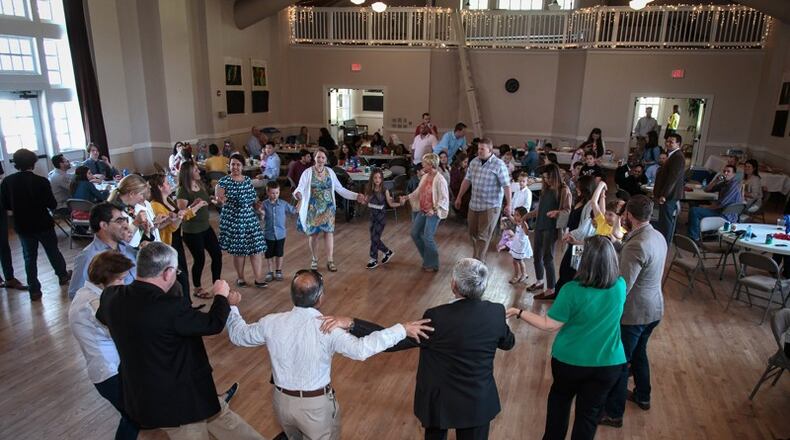Editor’s Note: This article has been updated to include a statement from the White House released Wednesday evening.
A federal judge on Wednesday temporarily halted President Donald Trump’s executive order giving state and local governments power to block the resettlement of refugees in their communities.
The preliminary injunction comes as Gov. Brian Kemp nears a decision on how to respond to Trump’s order. Under it, state and local authorities must provide written consent to the federal government if they want to accept refugees. A spokesman for Kemp said the governor’s administration is in contact with the White House but declined further comment.
In halting Trump’s Executive Order 13888, U.S. District Court Judge Peter Messitte said it is likely “unlawful.”
“By giving state and local governments the power to veto where refugees may be resettled — in the face of clear statutory text and structure, purpose, congressional intent, executive practice, judicial holdings and Constitutional doctrine to the contrary — order 13888 does not appear to serve the overall public interest,” wrote Messitte, a Maryland judge who was nominated by President Bill Clinton.
“Refugee resettlement activity should go forward as it developed for the almost 40 years before Executive Order 13888 was announced.”
Messitte issued his decision in response to a lawsuit three refugee resettlement agencies filed against Trump’s order in November.
The White House said the court ruling has “robbed millions of American citizens of their voice and their say in a vital issue directly affecting their communities.”
“This is a preposterous ruling, one more example of nationwide district court injunctions run amok,” the White House said, “and we are expeditiously reviewing all options to protect our communities and preserve the integrity of the refugee resettlement process.”
Refugee settlement agencies have scrambled since Trump’s Sept. 26 order to secure letters from states saying they’ll accept refugees. Those documents are crucial to the federal funding requests the resettlement agencies are piecing together before a Jan. 21 deadline. At least 42 states have said they would allow refugees, and Texas last week became the first state to say no.
Paedia Mixon, CEO of New American Pathways, said Wednesday afternoon her Atlanta-area refugee resettlement agency is no longer seeking a letter of consent from Kemp now that Messitte has placed Trump’s executive order on hold. But her agency still wants Kemp to say yes to refugees.
“We will continue to reach out to the governor to secure his support for refugee resettlement,” she said.
As many as 1,052 people who are fleeing persecution in their home countries could be brought to Georgia this fiscal year, according to the Coalition of Refugee Service Agencies.
No matter Kemp’s decision, he and other governors can’t block refugees from moving to their states once they have been resettled in America. They are permitted to move wherever they choose once they’re legally admitted to the U.S.
The governor, meanwhile, has faced intense political pressure over the decision from conservatives who want to curtail immigration and who have reminded him of his tough talk about the issue on the campaign trail. At the same time, he has been lobbied to allow refugee resettlement by some leading evangelical Christians who say Georgia has a moral obligation to help refugees, and from agricultural groups who say the newcomers provide an economic boost for rural communities.
White House officials say the refugee applicants admitted to the U.S. are subject to strict background checks and are screened by fraud detection and national security officers.
Last fiscal year, 1,189 refugees were resettled in Georgia, up from 837 the year before. The largest numbers last year came from Afghanistan, the Democratic Republic of Congo, Myanmar, Eritrea and Ukraine. In all, 30,000 refugees were resettled nationwide in the same time frame.
Keep Reading
The Latest
Featured





